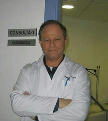Sessions and tracks
Pediatric Cardiology
The Division of Pediatric Cardiology is responsible for the diagnosis of congenital heart defects, performing diagnostic procedures such as echocardiograms, cardiac catheterizations, and electrophysiology studies, and for the on-going management of the sequel of heart disease in infants, children and adolescents. The various inflammatory heart diseases include Myocarditis; Kawasaki disease is a rare childhood illness that affects the blood vessels. There are also other pericardial diseases that can present clinically as acute pericarditis, pericardial effusion, and cardiac tamponed and constrictive pericarditis. Infective endocarditis is a form of endocarditis. It is an inflammation of the inner tissues of the heart. These are the main inflammatory defects for Babies Heart.
-
Cardiac Malformation
-
Congenital Abnormalities
-
Hypo plastic Left Heart Syndromes
-
Auditory Stimulation Therapy
-
Myocarditis
Clinical Cardiology
Clinical cardiology is a part of the remedial distinguishing strength of cardiology and is stressed over the examination and treatment of the rhythm of the heart. Electro physiologists work personally with various cardiologists and cardiovascular experts to help or guide treatment for heartbeat aggravations. Molecular Cardiology is the examination of a genetic heart issue and to decrease human disease through the fuse of basic science investigate and clinical cardiology. This asks about program furthermore consolidate the association between environmental segments, metabolic infirmity and less than ideal cardiovascular developing. These objectives are characterized by a translational methodology anticipated that would depict cardiovascular disease phenotypes through novel developments, genetically planned animal models and human examinations.
-
Gene Analysis in the Diseased Heart
-
Transgenic techniques in cardiac research
-
Medical genetics
-
Integrin and chemokine receptors in heart physiology & cardiovascular disease
-
Parabiosis and gene therapy
Cardiac Surgery
Cardiac surgery, or cardiovascular surgery, is surgery performed on the heart or blood vessels by cardiac surgeons. It is often used to treat complications of ischemic heart diseases like coronary artery bypass grafting, to correct congenital heart disease; or to treat valvular heart disease from various causes, including endocarditis, rheumatic heart disease, and atherosclerosis. It also includes heart transplantation.
-
Minimally Invasive Coronary Artery Bypass Surgery
-
Valve-Sparing Aortic Root Replacement
-
Open heart surgery
-
Trans myocardial Laser Revascularization
-
Off-Pump Heart Surgery
Cardiovascular Diseases
Cardiology Conferences promotes awareness against Risk factor modification about the heart diseases. The most comprehensive provider of cardiovascular services in the prevention, detection, management and treatment of the cardiovascular diseases. This annual cardiology meeting is a platform for postgraduate education and scientific work in the fields of cardiology, angiology, hypertension and cardiac and vascular surgery. It reduces clinical events and premature death in people with cardiovascular disease risk. Cardiovascular disease is treatable with initial treatment primarily focused on diet and lifestyle interventions. The medical meeting focuses on the treatment of diseases and new theories of diagnosis of the blood vessels and the vascular system or heart.
-
Pericarditis
-
Thrombosis and Pulmonary Embolism
-
Coronary Artery Diseases
-
Rheumatic Heart Diseases
-
Venous Thrombosis
Hypertension & Stroke
Hypertension is a long term therapeutic condition in which the blood pressure in the arteries is elevated. Hypertension does not have any symptoms. Long term high BP can lead to many heart diseases like coronary artery disease, heart failure, stroke, vision disease etc. The two types of hypertension are:
Primary Hypertension: Unknown cause; Secondary Hypertension: Lifestyle changes
Blood pressure is measured in systolic and diastolic pressure. The normal blood pressure is 120/80 mmHg, at rest.
A stroke occurs when blood flow to an area in the brain is cut off and people who have hypertension are four to six times more likely to have a stroke. Stay safe: Learn your risk factors and the warning signs of stroke and what to do in a stroke emergency. ‘Conference series LLC Ltd teams with CED, a Joint Accreditation Provider, as Joint Providers of CME Credits for the Cardiology Meetings consisting of physicians, cardiologists, cardiac surgeons, scientists, professors and young researchers’
-
Perioperative management in hypertension
-
Heart Failure
-
Erectile dysfunction
-
Systolic/Diastolic malfunction
-
Secondary hypertension
-
Genetic factors of hypertension
-
Life style of high blood pressure
Diabetes & Obesity
Diabetic Heart Disease (DHD) refers to a coronary illness that creates in individuals with diabetes. Individuals with diabetes will probably have certain conditions, or hazard factors, that expansion the odds of having coronary disease or stroke, for example, hypertension or elevated cholesterol. Weight is another significant purpose for heart sicknesses. This is a chronic metabolic disorder related to cardiovascular disease and expanded dismalness and mortality. It expands the hazard for coronary disease and stroke. Be that as it may, it hurts something beyond the heart and circulatory system. Obesity also causes health issues like gallstones, osteoarthritis, and respiratory issues. Notwithstanding weight gain is a successive result of heart-harming way of life decisions, for example, lack of exercise & a fat-loaded diet.
-
Diabetes Mellitus and Stroke
-
Abdominal Obesity
-
Metabolic syndrome
-
Vascular dementia
-
Weight Control
-
Apnea
-
Obesity and its Complications
Cardiac Pharmacology
Cardiovascular pharmacology deals with the medication of cardiac diseases. The Cardiac Drugs are used to treat conditions of the related to heart or the circulatory or vascular biology Many categories of cardiovascular agents are available to treat the various cardiovascular conditions. The most commonly used sub-category drugs include Sodium, potassium, calcium channel blockers, ACE-inhibitors and Cardiac biomarkers. There are mainly 6 associations and societies and the main association for Cardiac Therapeutic Agents in USA. 50 universities are working on Cardiac Therapeutic Agents. Recently three new drugs were introduced in 2015. There are many types of cardiovascular drugs in the market that include Cardiac glycosides, anti-coagulants, anti-arrhythmic agents, anti-angina agents and anti-hypertensive agents.
-
Drug-Induced Cardiac Toxicity
-
Novel Anti-Inflammatory Therapies for Atherosclerosis
-
Development of Novel Anti-Ischemic Agents
-
Beta Blockers Blocking
-
Cardiac Glycoside
Cardiac & Cardiovascular Research
Cardiovascular diseases are a group of disorders of the heart diagnosis and blood vessels. Cardiovascular disease includes coronary artery diseases (CAD) such as angina and myocardial infarction (commonly known as a heart attack). Other related diseases include stroke, heart failure, hypertension heart disease, rheumatic heart disease, cardiomyopathy, heart arrhythmia, congenital heart disease, valvular heart disease, Cardiac pharmacology, aortic aneurysms, peripheral artery disease, thrombo-embolic disease, and venous thrombosis.
The most common reason for this is a build-up of fatty deposits on the inner walls of the blood vessels that supply the heart or brain. Strokes can also be caused by bleeding from a blood vessel in the brain or from blood clots.
-
Pericarditis
-
Valvular Heart Diseases
-
Thrombosis and Pulmonary Embolism
-
Coronary Artery Diseases
-
Congenital Heart Defect
-
Venous Thrombosis
Women Heart Health
Men and women are very different when it comes to matters of the heart, and that’s just as true for matters of heart health. While heart disease is on the decline among men, it is continuously rising among women. It’s the number one killer of women over 35 worldwide, accounting for more deaths every year than all cancers combined. Women with diabetes generally have higher CVD mortality rates than men with diabetes. Women engaged in physical activity for less than an hour per week have 1.48 times the risk of developing coronary heart disease, comparing to the women who do more than three hours of physical activity per week. Go Red for Women is a major international awareness campaign that is dedicated to the prevention, diagnosis and control of heart disease and stroke in women.
-
Heart attack symptoms for women
-
Heart disease risk factors for women
-
Prevention, diagnosis & treatment
-
Antiarrhythmic agents
Echocardiography
Echocardiography is a painless test that uses sound waves to create moving pictures of your heart. The pictures show the size and shape of your heart. They also show how well your heart's chambers and valves are working. Echo also can pinpoint areas of heart muscle that aren't contracting and working because of poor blood flow or injury from a previous heart attack. A type of echo called Doppler ultrasound shows how well blood flows through your heart's chambers and valves.
Echo can detect possible blood clots inside the heart, fluid build-up in the pericardium, and problems with the aorta. The aorta is the main artery that carries oxygen-rich blood from your heart to your body. Doctors also use echo to detect heart problems in infants and children.
-
Transthoracic echocardiography
-
Trans esophageal echocardiography
-
Contrast echocardiography
-
Lung ultrasound examination
Cardiac and Heart Regeneration
Cardiac regeneration is a broad effort that aims to repair irreversibly damaged heart tissue with cutting-edge science, including stem cell and cell-free therapy. Reparative tools have been engineered to restore damaged heart tissue and function using the body's natural ability to regenerate. During a typical myocardial infarction or heart attack, an estimated one billion cardiac cells are lost. The scarring that results is then responsible for greatly increasing the risk of life-threatening abnormal heart rhythms or arrhythmias. Therefore, the ability to naturally regenerate the heart would have an enormous impact of modern healthcare. ‘Conference series LLC Ltd teams with CED, a Joint Accreditation Provider, as Joint Providers of CME Credits for the Cardiology Meetings consisting of physicians, cardiologists, cardiac surgeons, scientists, professors and young researchers’
Clinical Case Reports on Cardiology
A case report on Cardiology gives an appropriate convention for all cardiologists by rendering their important clinical cases of late occurrence. Studying from medical cases provides valuable experience for clinicians, students and paramedical staff -members. Rare medical reports and conditions discovered through the latest methods of examination are energized. Moreover, studying diagnostic methods from medical cases and the interpretation of symptoms is significant to train and burgeon the thought processes which are being used in the clinical field. ‘Conference series LLC Ltd teams with CED, a Joint Accreditation Provider, as Joint Providers of CME Credits for the Cardiology Meetings consisting of physicians, cardiologists, cardiac surgeons, scientists, professors and young researchers’
Cardiology - Future Medicine
A cardiologist is a doctor who specializes in the studies of heart & its functions & also diagnosis, treatment and preventing diseases related to heart and blood vessels. You might also visit a cardiologist, so you can learn about your risk factors for heart disease and find out what measures you can take for better heart health. Cardiology – Future medicine is a field which is changing rapidly, new technologies as drug-eluting stents, assist devices for left ventricle, and novel inflammatory markers, and imaging modalities such as magnetic resonance imaging and 3D echocardiography.
-
General clinical cardiologists
-
Pediatric cardiologists
-
Cardiovascular Anesthesiology
-
Cardiovascular Pathology Research
-
Preventive cardiologists
Atherosclerosis
Atherosclerosis is a disease in which plaque builds up inside your arteries. Arteries are blood vessels that carry oxygen-rich blood to your heart and other parts of your body. Plaque is made up of fat, cholesterol, calcium, and other substances found in the blood. Over time, plaque hardens and narrows your arteries. This limits the flow of oxygen-rich blood to your organs and other parts of your body. Atherosclerosis can lead to serious problems, including heart attack, stroke, or even death. The Artery-wall thickens as a result of invasion and accumulation of white blood cells (WBCs) (foam cell) and proliferation of intimal-smooth-muscle cell creating an athermanous (fibro fatty) plaque. Plaque creates a bump on the artery wall. As atherosclerosis progresses, that bump gets bigger. When it gets big enough, it can create a blockage. That process goes on throughout your entire body. As a result, not only is your heart at risk, but you are also at risk for stroke and other health problems. Atherosclerosis usually doesn’t cause symptoms until middle or older age. But as the narrowing becomes severe, it can choke off blood flow and cause pain. Blockages can also rupture suddenly. That’ll cause blood to clot inside an artery at the site of the rupture. ‘Conference series LLC Ltd teams with CED, a Joint Accreditation Provider, as Joint Providers of CME Credits for the Cardiology Meetings consisting of physicians, cardiologists, cardiac surgeons, scientists, professors and young researchers’
Sports Cardiology
Sports Cardiology is related with the cardiovascular care of athletes and exercise cardiology is related to the individuals of all the age groups. Sports cardiology also includes the heart screening which helps to detect serious cardiovascular issues in young athletes. The main reason for death in exercising young athletes is Sudden Cardiac Arrest. This is activated by a malignant tachyarrhythmia, for example, ventricular fibrillation (VF) or ventricular tachycardia deteriorating into VF. Cardiologists confront various difficulties in assessing the athletes because of complex individual cardiovascular demand and adaptations forced by exercise. The main aim of the Sports Cardiology Center is to work with any athlete forward the range - proficient athlete, recreational exercisers, to end of the week warriors to enable them to achieve these goals.
-
Cardiovascular epidemiology & population science
-
Improving ECG interpretation in athletes
-
Circadian rhythm
-
Cardiovascular assessment
-
Sports and cardiovascular disease Patient-centered counseling
-
Cardiac exercise science
-
Exercise stress testing
-
Sudden cardiac death in sports








